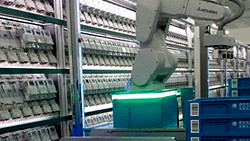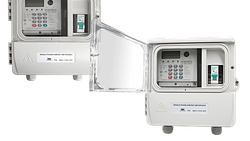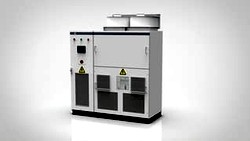In today's world, we rely heavily on critical systems like power plants and transport networks to function without a hitch. As these systems adopt more advanced technologies and become increasingly interconnected, they also become more exposed to cyber threats. This makes the management of digital keys, which control access to these systems, incredibly vital.
Consider electricity meters, for instance. These devices are crucial because they measure how much power we use and determine our electricity bills. To ensure the data they collect is secure, it's encrypted with special keys. Effective key management involves generating, storing, and regularly updating these keys to prevent any tampering with the meters or unauthorized access. For energy companies, strong key management isn't just about preventing financial loss from inaccuracies or theft; it's also about maintaining the trust of both customers and regulators.
Moreover, robust key management is a key defence mechanism against the dynamic threats in the cyber world, ensuring our utilities are reliable, transport systems run smoothly, and our personal data remains secure as these technologies evolve.

Staying Secure in the Smart Energy World
Smart energy grids promise a more efficient future, with homes and devices all linked up. But greater connectivity means more weak spots for cyber crooks to attack. So how do we keep the smart grid secure?
The answer lies in managing the digital keys that lock up all the data zipping around the system. These keys encrypt communications between meters, sensors and control centres – scrambling data, so only authorized parties can read it.
Handled properly, strong encryption keys let devices identify one other securely, transmit information safely, and block unapproved access. That means the data flowing through our smarter energy networks stays out of the wrong hands. With robust key management processes generating, distributing and retiring keys, utility companies can guard against breaches and keep the lights on. Just like with old-fashioned physical keys, our digital keys must be kept safe as we build the grid of the future.
Keeping Things Running Smoothly from Afar
These days, power grids are complex beasts spanning large areas. That's why remote management is crucial – it avoids downtime and engineers trekking to far-flung meters and substations. But how can utilities update and tweak their critical systems securely from a distance?
The answer, again, lies in those digital keys. With robust key management, energy firms can confirm any remote software patches or configuration changes are legit, stopping cyber intruders in their tracks. The right encryption keys also enable secure channels for remote maintenance tasks, letting engineers diagnose and fix issues without compromising the grid.
So proper cryptographic key handling gives utility staff the power to manage infrastructure efficiently from their desks. Just like using a password to access your computer remotely, digital keys allow critical systems to be managed securely from afar – minimizing disruption and keeping the lights on.
Playing by the Rules with Strong Key Management
Operating power infrastructure means jumping through many hoops – industry bodies and regulators demand strict security standards. So how can energy firms prove they take encryption seriously? By sticking to guidelines like the IEC's 62056 standards for meter data security. These lay out key management best practices for creating keys securely, controlling access and preparing for compromised keys.
Solid key management ticks all the right boxes, showing utilities take data protection and integrity seriously. And that means staying on the right side of regulators, avoiding fines and legal issues. So while effective key handling helps keep critical systems safe, it also demonstrates compliance. It shows customers and authorities that energy companies have security wrapped up at every level as they operate within the rules. Because in such a vital sector, playing by the book is the only option when it comes to protecting critical data.
Best Practices for Key Management
To establish effective key management in energy meters and critical infrastructure, power companies and utilities should consider the following best practices:
- Key Generation and Storage
Implement secure mechanisms for key generation, utilizing strong cryptographic algorithms. Safely store keys in tamper-resistant hardware or encrypted storage systems. - Key Distribution
Establish secure protocols for key distribution, ensuring that keys are securely transmitted to authorized entities and protecting them during transit. - Key Revocation and Renewal
Regularly monitor and update keys, revoking compromised or outdated keys promptly. Implement a key rollover strategy to maintain a secure and seamless transition. - Access Control and Authentication
Employ robust access control mechanisms and enforce strong authentication procedures to restrict unauthorized access to keys and critical infrastructure. Implement multifactor authentication and role-based access controls to ensure only authorized personnel can access and manage cryptographic keys. - Physical Security Measures
Implement physical security measures, such as secure facilities, video surveillance, and restricted access areas, to protect key management systems and prevent unauthorized physical tampering. - Regular Auditing and Monitoring
Conduct regular audits and monitoring of key management processes to identify any vulnerabilities or potential weaknesses. Implement intrusion detection systems and log management tools to detect and respond to security incidents promptly. - Employee Training and Awareness
Provide comprehensive training to employees regarding the importance of key management, security protocols, and best practices. Foster a culture of security awareness to ensure personnel understand their role in maintaining the integrity and confidentiality of cryptographic keys.
Takeaway
At the heart of all energy infrastructure lies some clever cryptography – those encryption keys keeping data and systems secure. Robust key management has become crucial as grids get smarter and cyber threats grow. Handled properly, digital keys can lock out meter tampering, data breaches and unauthorized access. Following industry standards for key security also shows customers and regulators that utilities are committed to playing by the rules.
As energy systems expand to new tech, their complexity grows too. That's why key management is so vital in keeping the lights on and our critical infrastructure safe. By treating keys with care, power companies can protect the integrity of smarter grids and avoid outages. So in the complex, regulated energy sector, encryption keys unlock the door to security and reliability. With strong key management, utilities and infrastructure operators hold the key to defending our critical systems from cyber threats now and in the future.
Enhance the security and reliability of your energy infrastructure with our advanced Metering Infrastructure (AMI) system solution, equipped with a robust key management module. Contact our knowledgeable experts today to learn more about how our solution can safeguard your operations and ensure regulatory compliance.





All comments are moderated before being published. Inappropriate or off-topic comments may not be approved.